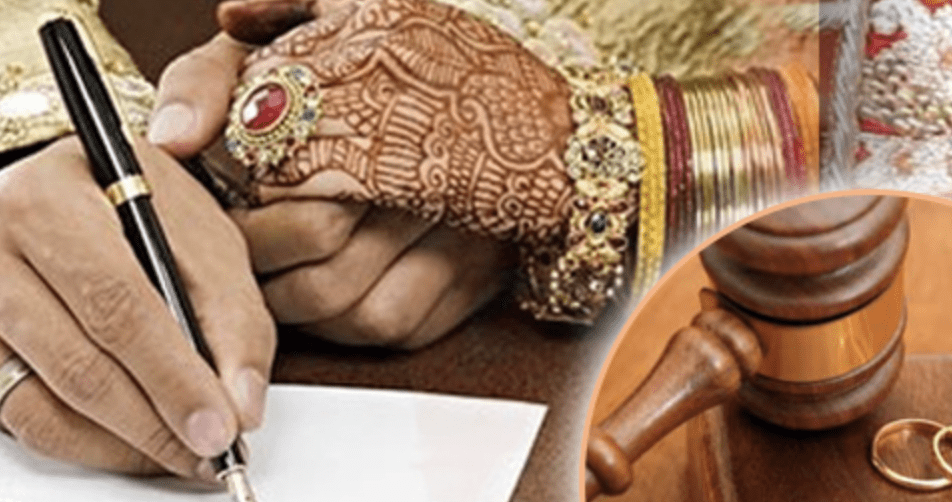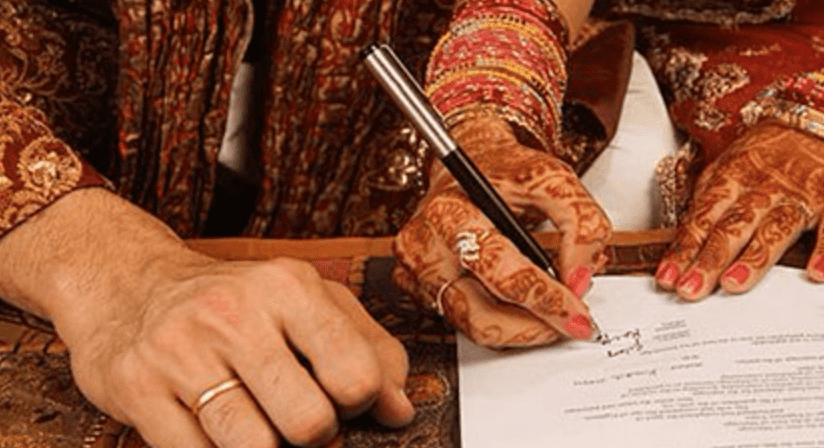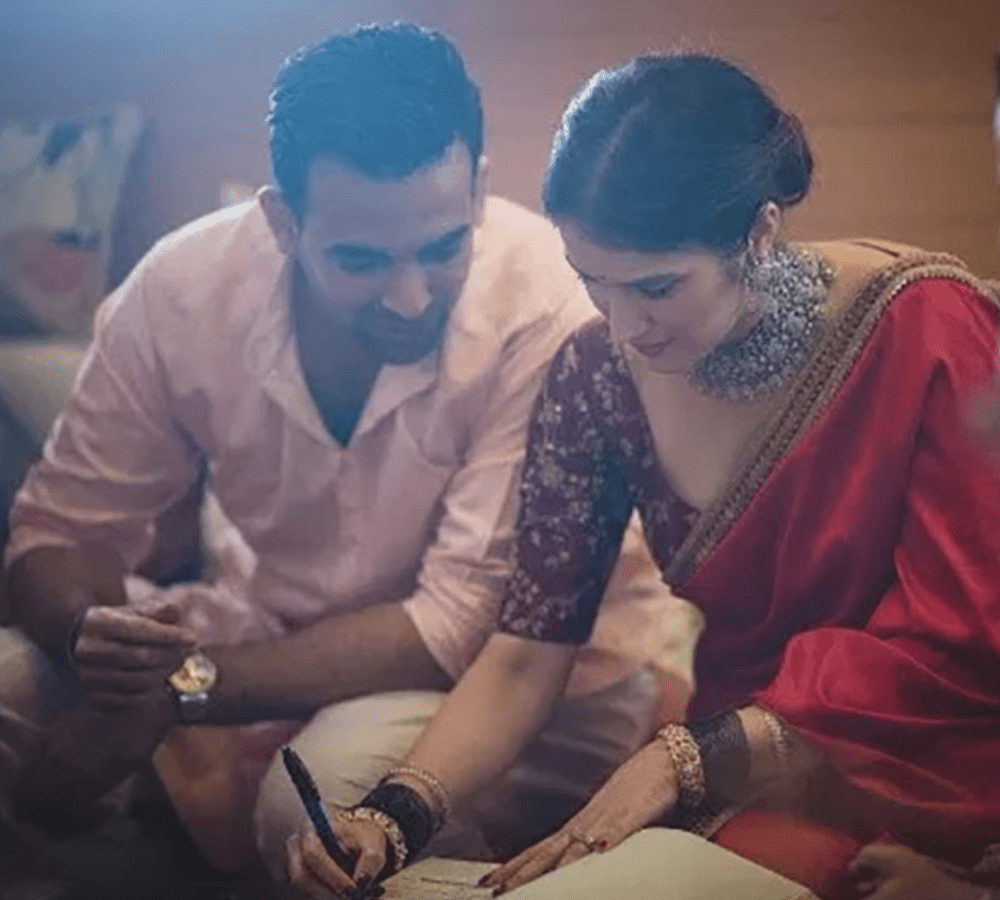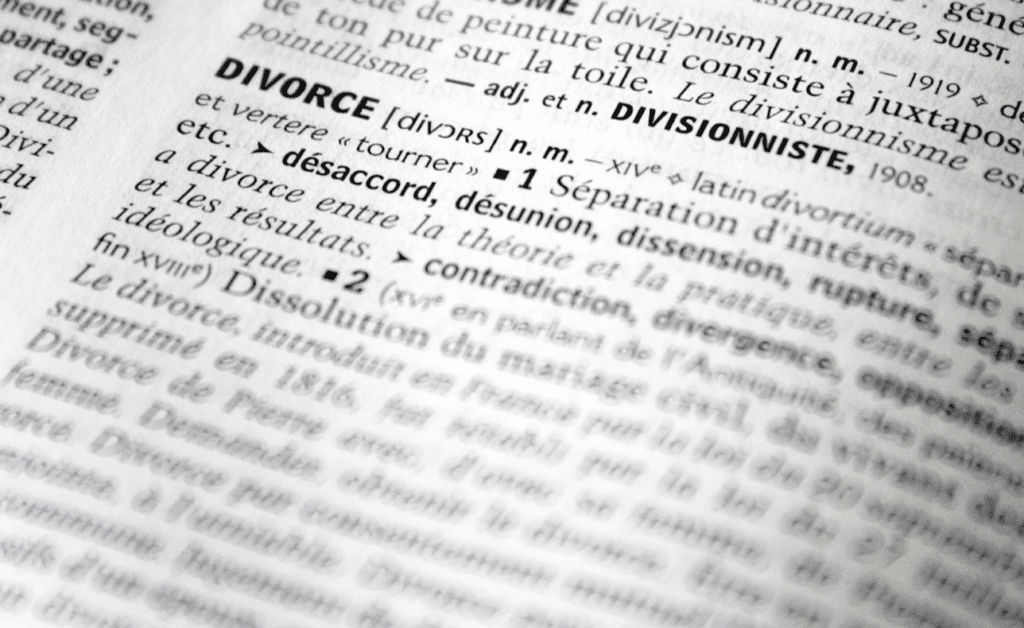Shumi and Wahid have a deep love for one another. As Sara’s family does not approve of this relationship and is forcing her to marry a person of their choosing, they fled their home and conducted a court marriage. Since childhood, we are accustomed to hearing this type of story, whether true or false, in movies or in real life. So let me explain what a court marriage actually entails. Is it a criminal offense? How does a court marriage occur? What impact will a court marriage have? Is it possible to harass someone legally? Is it illegal? Should the (male) groom be accused of kidnapping and molesting the (female) bride? Is it forbidden according to religious law? What is the procedure for legalizing a marriage through a court?

Marriage in Islam
MUSLIM MARRIAGE in Bangladesh:
The essential requirements for a valid Muslim marriage are as follows:
The essential requirements for a valid Muslim marriage are as follows:
The presence of at least two witnesses is required, and female witnesses will be counted as if they were males.
The parties must be Muslim or kitabia, of sound mind, and of legal age. According to the Child Marriages Restraint Act of 2017, the bride must be at least 18 years old and the groom must be at least 21 years old.
The marriage should be registered per the Muslim Family Laws Ordinance of 1961.
Both parties must give their consent voluntarily and freely.
Dower funds or “Denmahar” must be determined by the guardian of the parties or by the parties to the marriage.
Fees for Marriage Registration:
The government has established Marriage Registration fees commensurate with dowry, such as:
The fee is BDT 12,50/= for every BDT 1,000/= (One Thousand Taka) of dower money.
The fee is BDT 1,250/= (1,250 Taka) for each BDT 1,00,000/= (1 lac Taka) of dower money.
The fee is BDT 100/= (One Hundred Taka) after dower money of BDT 4,00,000/= (Four Lac Taka).
INTERFAITH MARRIAGE
Under the Special Marriages Act of 1872, marriages between members of different religions are recognized.
The Act specifies that marriages may be solemnized between parties neither of whom professes the Christian or Jewish faith, the Hindu or Muslim faith, the Parsi or Buddhist faith, or the Sikh or Jaina faith, or between parties each of whom professes one of the following religions, namely the Hindu, Buddhist, Sikh or Jaina faith, subject to the following conditions:
(1) At the time of the marriage, neither party may have a living husband or wife.
(2) The man must have reached the age of eighteen and the woman must have reached the age of fourteen, according to the Gregorian calendar.
(3) If neither party has reached the age of twenty-one, each must have the consent of his or her father or legal guardian to the marriage:
(4) The parties may not have any degree of consanguinity or affinity that, according to any law to which either party is subject, would make a marriage between them illegal.
NOTICE BEFORE MARRIAGE to officiate in Bangladesh
One of the parties must provide written notice to the Registrar who will officiate the marriage. The Registrar to whom such notice is given must be the Registrar of a district in which at least one of the parties to the marriage has resided for at least fourteen days immediately preceding the giving of such notice.
SIGN A FORM OF DECLARATION:
Before the marriage is solemnized, the parties and three witnesses must sign a declaration in accordance with the second schedule of the Special Marriage Act of 1872 in the presence of the Registrar. If either party has not reached the age of twenty-one, his or her father or guardian must also sign the declaration, except in the case of a widow, and it must be countersigned by the Registrar.
DIVORCE PROCESS IN BANGLADESH:
Universally, divorce refers to one of the types of legal dissolution of a material bond between parties who meet the legal requirements.

DIVORCE FROM A MUSLIM WEDDING:
TALAQ:
In accordance with the Muslim Family Law Ordinance of 1961, it is stated that-
(1) Notification to Chairman: Any man who wishes to divorce his wife must, as soon as possible after the proclamation of Talaq in any form, notify the Chairman in writing and provide a copy of the notice to the wife.
(3) Iddat Period: Except as provided in subsection (5), a talaq shall not take effect until the expiration of ninety days from the date on which the notice required by subsection (1) is delivered to the Chairman.
(4) Formation of Arbitration Council: Within thirty days of receiving notice pursuant to subsection (1), the Chairman shall form an Arbitration Council to facilitate reconciliation between the parties, and the Arbitration Council shall take all steps necessary to facilitate reconciliation.
(5) Pregnancy: If the wife is pregnant at the time the talaq is pronounced, the talaq will not take effect until the period specified in subsection (3) expires or the pregnancy ends, whichever comes first.
(6) Re-marriage of Wife: Nothing shall prevent a wife whose marriage has been terminated by Talaq pursuant to this section from remarrying the same husband without an intervening marriage with a third party, unless such termination is for the third time so effective.
DIVORCE BY WIFE in Bangladesh:
- According to the Muslim Family Laws Ordinance of 1961, if the right to divorce has been duly delegated to the wife and she wishes to exercise it, or if any of the parties to a marriage wishes to dissolve the marriage by means other than Talaq, the provisions of Talaq shall apply, mutatis mutandis and to the extent that they are applicable.
- In addition, the provisions of the Dissolution of Muslim Marriages Act of 1939 state:
- A Muslim law-married woman may obtain a decree for the dissolution of her marriage on the basis of one or more of the following grounds:
- that the husband’s whereabouts have been unknown for the past four years.
- that the husband has neglected or failed to support the wife for a period of two years.
- that the husband was sentenced to seven years or more in prison.
- that the husband has failed to fulfill his marital obligations for three years without reasonable cause;
- that the husband was impotent at the time of the wedding and still is;
- that the husband has been insane for two years, has leprosy, or is suffering from a virulent venereal disease.
- she was given in marriage by her father or another guardian before she turned eighteen, and she renounced the union before she turned nineteen; provided the union was not consummated
(a) habitually assaults her or makes her life miserable by cruelty of conduct even if such conduct does not amount to physical ill-treatment, or
(b) associates with women of evil repute or leads an infamous life, or
(c) attempts to force her to lead an immoral life, or
(d) disposes of her property or prevents her from exercising her legal rights over it, or
(e) obstructs her in the observance of her religious professions

on any other basis recognized by Muslim law as valid for the dissolution of a marriage:
Provided, however, that- (a) no decree shall be passed on ground (iii) until the sentence has become final; (b) a decree passed on ground I shall not take effect for a period of six months from the date of such decree, and if the husband appears in person or through an authorized agent and satisfies the Court that he is prepared to perform his conjugal duties, the Court shall set aside the said decree; and (c) before passing a decree on ground
DISSOLUTION OF HINDU MARRIAGE
There is no law in Bangladesh regarding the dissolution of Hindu marriages. Hindus view their marriage as a sacred union that forms an unbreakable celestial bond.
Nevertheless, separation is possible and does occur in Hindu marriages. However, Hindu married women may only exercise this right if they are virtuous and have not changed their religion, or if they have sufficient cause to comply with a court order for the restitution of conjugal rights.
In accordance with the provisions of THE HINDU MARRIED WOMEN’S RIGHT TO SEPARATE RESIDENCE AND MAINTENANCE ACT, 1946, a Hindu married woman may seek separation from her husband and request maintenance from him if she meets the following criteria:
- If he is suffering from a disease that he did not acquire from her;
- If he has treated her with such cruelty that it is unsafe or undesirable for her to live with him;
- If he is guilty of desertion, which is abandoning her against her will or without her consent;
- If he marries once more;
- If he stops being Hindu by converting to another faith;
- If he keeps a concubine in the home or resides regularly with one;
- For any other legitimate reason.
DISSOLUTION OF CHRISTIAN MARRIAGE
- According to the Divorce Act of 1869, it is stipulated that-
- Any husband may petition the District Court or the High Court Division for the dissolution of his marriage on the grounds that his wife has committed adultery since the marriage was solemnized.
- Any wife may file a petition to dissolve her marriage with the district court or the High Court Division if:
- Her husband has renounced his Christian faith and converted to another religion, as well as gone through a marriage ceremony with another woman.
- Or has committed incestuous adultery
- Or of polygamy and adultery.
- Or, marriage to another woman constitutes adultery.
- Or of rape, sodomy, and cannibalism
- Or of adultery coupled with such cruelty that had she not committed adultery, she would have been entitled to a mensa et toro divorce.
- Or adultery coupled with abandonment without justification for two years or more.

Voidness of Marriage
A district judge may then issue a nisi decree of dissolution of marriage, subject to confirmation by the High Court Division. The District Judge Court or the High Court may also issue a decree of nullity of a marriage if any of the following conditions exist:
I that one of the parties is impotent; (ii) that the parties are within the prohibited degree of consanguinity or affinity; (iii) that either party was insane at the time of the marriage; (iv) that the former husband or wife of either party was alive at the time of the marriage, and that marriage was in effect at the time of the marriage.
AT TLS, LEGAL ADVICE CONCERNING MARRIAGE AND DIVORCE
The Barristers, Advocates, and attorneys at TLS in Mohakhali, Dhaka, Bangladesh have extensive experience with marriage, divorce, and alimony matters. In addition to handling marriage and divorce issues for domestic clients on a regular basis, the firm has extensive experience advising and assisting numerous international clients with the utmost care and attention throughout their legal issues. For questions or legal counsel, please contact us at:
E-mail: info@tahmidur.com
Phone: +8801779127165
Address: House 410, Road 29, Mohakhali DOHS, Dhaka 1212
Therefore, let’s discover the answers to these frequently asked questions. Court marriage is a straightforward declaration. This is a declaration before a “Notary Public” using a “Affidavit” that requires stamp paper and the signatures of both parties. The question arises as to whether the affidavit should be executed before or after marriage. As they declare themselves to be husband and wife in the affidavit, they must first get married in front of the registrar of marriage to demonstrate that they were legally married and eligible to sign the contract. According to Bangladeshi Civil Law, a Marriage Registrar is required for all marriages in Bangladesh.
The couple must obtain a marriage certificate after registering their wedding. Marriage Certificate is the most important and fundamental document of marriage. You must remember that the document and procedures referred to as “Court Marriage” are supplementary and additional documents that have no value without a marriage certificate. Affidavits of marriage from applicants, relatives, or family members are not sufficient to establish the legal validity of a marriage.
Procedure for Muslim-Sunni Marriage in Bangladesh Conditions of Marriage:
- the female or bride must be at least 18 years old. She must present a National Identification Card or School Certificates, such as SSC/JSC/JDC, or a Passport or Birth Certificate.
- .The male or groom must be at least 21 years old. He must present his National Identification Card, School Certificates (SSC/JSC/JDC), Passport, or Birth Certificate.
- Note that no affidavit will be accepted without these certificates to establish the correct age.
Declaration or proposal of marriage by one party, followed by acceptance (Kabul) by the other. - Minimum of two witnesses are required. In the case of a female witness, one male will equal two females. For instance, witnesses can be two men or two women and one man.
- A person will be present as the parties’ guardian or Ukil/Ukilbaba.
The guardian of the parties or the parties themselves must determine the amount of the dowry or Denmahar.
Fees for Marriage Registration: - The fees for registering a marriage are based on Dower Money.
- The registration fee for each one thousand Taka of dower money is twelve and fifty Taka (Twelve Taka and Fifty Paisa)
- The registration fee is 1,250/- for each 1, 00,000/- (One Lac Taka) of dowry (One Thousand Two Hundred and Fifty Taka)
After 4,000,000/- (Four Lac Taka), the registration fee is 100/- per lac (One Hundred Taka)
For example, if the Dower money is 1,000 taka, the registration fee would be 12,50 taka. However, this calculation would only be applicable up to a maximum of four million taka.Dower money 4 lac taka, registration fee = 5,000/- Dower money 5 lac taka, registration fee = 5,100/-

Religious Ceremonies:
The Kazi will perform the religious rituals. He will recite the Surah for marriage and ask the parties for their consent.
Constitutional formalities:
Registration method:
For Muslim marriages, the applicants/parties must contact the Qazi office or the registrar who solemnized the marriage, register the marriage immediately in the marriage register book, and give the parties a receipt for the marriage certificate/Nikah Nama (Bengali and English versions). Where a marriage is solemnized by a person other than the Nikah registrar, the bridegroom of the marriage must report it to the concerned Nikah Registrar within 30 days from the date of such solemnization. Anyone who violates this procedure shall be punished with a simple imprisonment which may extend to two years or a fine of three thousand taka, or both, in accordance with the Muslim Marriages And Divorces (Registration) Act-1974.
Collection of Kabin-nama:
After one week from the marriage, parties can obtain Kabin-nama by presenting the marriage registration receipt. In an emergency, the Kabin-nama can be retrieved within a day.
The “Special Marriage Act-III of 1872” applies if the parties to a marriage are of different religions. Therefore, they must contact a different marriage registrar, such as Kazi. As with other marriages, the Marriage Certificate is the central document in this case. Endorsement of a marriage under the guise of “Court Marriage” is a sham marriage that has no legal effect and is merely a declaration. In order to consummate a valid marriage, the parties involved must observe their respective religious rites and registration requirements. Documents authenticated by a notary public have little value for establishing a legal claim. It basically verifies the authenticity of a document or a formal declaration.
In the absence of specific Hindu/Buddhist/Christian marriage registration instructions from the Bangladeshi government, the applicant should contact the City Corporation, the priest who solemnized the marriage, or the administration of the Church/Temple where the marriage was solemnized.
What if the bride’s parents file a lawsuit against the groom for kidnapping their daughter?
Section 7 of the Nari O Sishu Nirjatan Daman Ain, 2000, allows the bride’s side to file a case against the groom for abducting their daughter if there is no other way to teach the groom a lesson. As the crime is cognizable and non-bailable, the police immediately arrest the groom, and if the bride’s parents are influential, they use torture to coerce the groom into confessing that he abducted the girl. In this situation, the bride must have the courage to save her life partner. The procedure is straightforward: she must go to the nearest 1st-class magistrate court, present the marriage certificate/Nikahnama/Kabin Nama and affidavit, and state before the magistrate, pursuant to Section 22 of the aforementioned Act, that the groom did not abduct her, but she voluntarily fled with him, and she is of legal age and competent to perform the marriage. What is your opinion? Yeah! Case resolved. The bridegroom will be freed. Keep in mind, however, that if the parents of the bride take a death oath to harass the groom, they have numerous options. Who, however, is so cruel as to harass his son-in-law? After all, the couple has chosen each other without committing a crime!
CONTACT A TOP FAMILY LAW FIRM IN BANGLADESH
If you want any legal help regarding Marriage Process in Bangladesh, you may contact the best family law firm in Bangladesh.
E-mail: info@tahmidur.com
Phone: +8801847220062
Address: House 410, Road 29, Mohakhali DOHS, Dhaka 1212
Your content goes here. Edit or remove this text inline or in the module Content settings. You can also style every aspect of this content in the module Design settings and even apply custom CSS to this text in the module Advanced settings.
আপনি যদি এই সম্পর্কে আরও বিস্তারিত জানতে চান, এই আর্টিকেল গুলো বিবেচনা করতে পারেন।



0 Comments